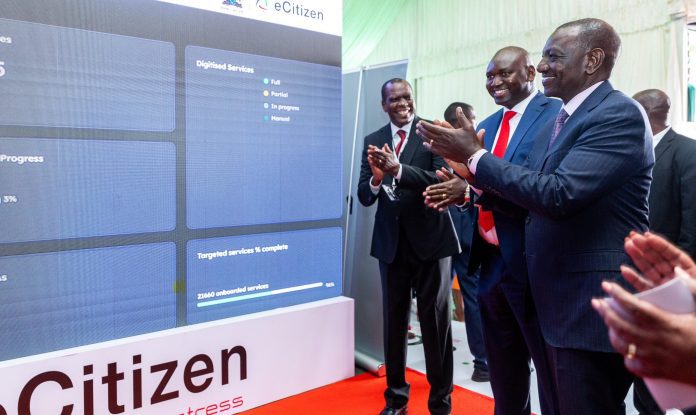Who owns eCitizen? This is the question that has left many puzzling after it emerged on Thursday that the platform is still being run by a private company two years after the government claimed to have taken over ownership. eCitizen hosts public data and collects hundreds of billions of money paid by the public to access government services.
The Director General of Accounting Services at the National Treasury Bernard Ndung’u told the National Assembly Committee on Finance and National Planning that private vendors are still running the platform despite the government ‘fully’ owning it.
“The e-Citizen system is owned by government. Sometime back the vendors were in court with government but that case was settled through the Attorney General’s office and they handed over the system formally to government,” said Ndung’u. “The vendors were retained under contractual arrangements to keep supporting the system.”
It further emerged that the National Treasury is not the custodian of the contract that the government claims to have offered private vendors to run eCitizen. Apparently, the custodian is the Immigration and Citizens Services.
The first red flag on the ownership of eCitizen was raised by the Auditor General Nancy Gathungu in a February 2024 report, one year after the government had claimed to have taken control. According to the report, e-Citizen was owned by private firms who had in turn allowed the government to use its services.
“Preliminary review of operations of the e-Citizen Government Digital Payments (GDP) platform indicate that, despite the strategic importance of e-Citizen, the government does not have full control of the system and [relies] significantly on the vendor for some critical functions,” the Auditor General stated in the report.
Motorists to pay toll to use major roads in Nairobi, Mombasa, Kiambu
The report had pointed out that the platform’s IT controls could not guarantee the integrity of the data processed through the system. “Lack of full control of the system exposes the government to the risk of revenue leakage, lack of full accountability, system unavailability or downtime, security vulnerabilities and threats including lack of business continuity.”
In that report, the Auditor General had further noted that despite the shift to digital payments via eCitizen, the National Treasury was handling the reconciliation of the payments made and their settlements manually.
“Review of financial operations of the GDPU indicates that reconciliations and settlements were done manually,” the report noted, highlighting that this was occurring on two days a week. “This special audit is informed by the current strategic importance of e-Citizen in the financial architecture of the government. The special audit is expected to provide highlights on the credibility and reliability of the e-Citizen system, including assurance on whether data processed through the system is accurate and complete.”








